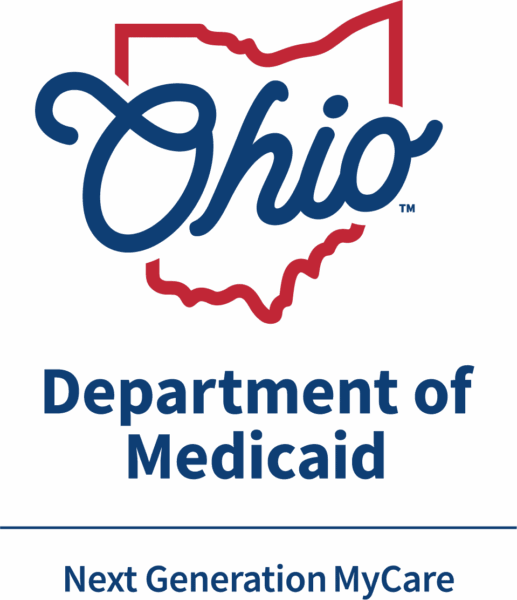Who is eligible for Medicaid in Pennsylvania?
There are two types of criteria that determine whether or not you are eligible to enroll in the Pennsylvania Medicaid program.
Firstly, here are the residential, household, and health-related requirements that you must meet:
- Be a U.S. citizen, permanent resident, or legal alien.
- Live in Pennsylvania.
- Demonstrate that you need help to meet your health care and/or health insurance necessities.
- Either be pregnant, someone in your household has a disability (including yourself), or have a child that’s 17 years old or younger who depends on you.
To clarify, you have to fulfill all of the initial three requirements above, alongside one of the three characteristics in the final bullet point.
Secondly, you must also prove that you have a low income. In other words, your annual earnings should be below a certain threshold in order to be eligible for Medicaid in Pennsylvania.
The amounts, which are based on your household size, are as follows:
- $17,131 per year: 1 individual in the household
- $23,169: 2 household members
- $29,207: 3 household members
- $35,245: 4 household members
- $41,284: 5 household members
- $47,322: 6 household members
- $53,360: 7 household members
- $59,398: 8 household members
- An additional $6,038: Add this amount per individual if your household has more than 8 members
Keep in mind that this covers your pre-tax income. Usually, your paycheck will be slightly lower than your actual earnings. This is because your employee deducts the taxes before paying you.
Equally as important is that these numbers are annually adjusted to account for inflation. Therefore, you should check these earnings thresholds every year before applying for or renewing your Medicaid coverage.
How to apply for Medicaid in PA
You can apply for Pennsylvania’s Medical Assistance/Medicaid program online, via phone, in person, or by filling out a paper application.
Applying Online
The COMPASS website, which is provided by the state’s Department of Human Services, allows you to submit a new Medicaid application and renew your existing coverage.
Another option, particularly when you don’t have access to a laptop or desktop device, is to download the myCOMPASS PA app on your smartphone.
Through the app, you can submit documents, review your application, and manage your benefits account.
Applying via Phone
In short, the Consumer Service Center for Health Care Coverage can help you prepare your documents, submit your application, and answer any question that you may have.
To apply for Medicaid in Pennsylvania via phone, call the following number: 1-866-550-4355.
In-Person Applications
You can visit the Department of Human Services’s county assistance office (CAO) in your area to apply in person. However, before you head to a local CAO, you should give them a call ahead of time to make sure that you have all the documents and paperwork that you need.
To find your county’s CAO address, phone number, and hours of operation, visit the Department of Human Services’s CAO Contact Information page.
Paper Applications
Another option is to fill out the cash, health care, and SNAP benefits paper application form. On page 1, check the ‘Health Care Coverage’ box on the top (you could check the ‘cash assistance’ and/or ‘SNAP’ boxes, as well, if you plan on applying for these programs).
Next, regardless of whether you’re applying for Medicaid alone or for other programs alongside it, simply fill out the rest of the application and add your signature and the date on page 15.
Finally, submit the paper application to your local CAO. You can fax it to them, send it via mail, or give it to them in-person if you plan on visiting your county’s office.
From there, the CAO will let you know when your application is approved and if you need to provide additional documents or information. You might even be able to follow the status of your application on the COMPASS website and/or phone app.
Can you appeal a denial of Medicaid services in PA?
If the Pennsylvania Department of Human Services denied your Medicaid application, there are two courses of action that you may take: Appeal the decision or look for alternative assistance programs in Pennsylvania.
Appealing a Denial of Medicaid Services
When you make an appeal, the state’s Bureau of Hearings and Appeals (BHA) will oversee the process. The steps below illustrate how appeals are handled:
- After the Department of Human Services notify you that your Medicaid application was denied, you have to submit a written appeal to one of the program offices that handle these issues.
- The program office will forward your appeal to BHA within three days from when you submitted it.
- BHA schedules a hearing. They will notify you and the Department of Health office that denied your application of the hearing date.
- You can choose whether to have a phone or in-person hearing. Most of the time, it is done by phone, but Philadelphia residents may be asked to appear in person.
- Prepare your supporting documents and evidence so that you can present them during the hearing.
- An Administrative Law Judge holds an organized, yet somewhat informal, hearing. In other words, you don’t need a lawyer to represent you or give a pitch-perfect argument.
- The Administrative Law Judge either makes an oral decision or issues a written one.
- The decision is sent to the Department of Human Services who, in turn, can affirm, amend, reverse, or remand the judgement. When the judge rules in your favor, the Department of Human Services will change the Medicaid application denial to an approval.
- If the Administrative Law Judge rejects your appeal, you can put forward a request for reconsideration to the Secretary of Human Services within 15 days and/or submit a petition to the Commonwealth Court of Pennsylvania. If you only submit a request for reconsideration, you become eligible for benefits when the Secretary of Human Services decides in your favor.
- However, if the secretary sides against you, you could petition the Commonwealth Court of Pennsylvania (assuming that you initially only submitted a reconsideration request) within 30 days.
The Denial of Medicaid Services
At times, even the Commonwealth Court of Pennsylvania could uphold the denial. Moreover, some applicants may choose not to appeal the decision, to begin with.
For example, if you misunderstood one of the Medicaid eligibility requirements or had life changes that disqualified you (such as an increase in income, for example), it might be best to save your time and not appeal the decision.
In any case, there are other options that you should consider if your Medicaid application or appeal doesn’t go through. This includes the following:
- The Breast and Cervical Cancer Prevention and Treatment (BCCPT): Pennsylvania breast and cervical cancer patients that are younger than 65 years old and have no health insurance can get treated for free under the BCCPT program.
- Medical Assistance for Children and Pregnant Women: Uninsured and underinsured women can obtain no-cost medical help when they find out that they’re pregnant. In fact, this program covers infants immediately after they’re born. Children under the age of 18 in low-income households are included as long as they continue to live with their mother.
- Medical Assistance Transportation Program (MATP): If you don’t have access to transportation to and from your medical appointments, MATP enables you to commute for a price that you can afford.
- Medical Assistance for Workers with Disabilities (MAWD): This allows disabled individuals to find work and earn more money without having to lose their health insurance benefits.
In the same vein, you may want to consider other alternatives if your Medicaid application was denied. For example, there are assistance programs that specifically pertain to home/community-based services, mental health, and prescription drugs.
To find out more, call the Fee-for-Service Recipient Service Center. Their phone number is 1-800-537-8862. They will let you know which programs you might be eligible for and whether or not you need to pay any premiums.
Will I have to pay copayments with a Medicaid plan?
The copayment amount that you pay depends on the type of health services that you receive. Some of them don’t require copayments, but many others do.
Under certain programs, such as the BCCPT one that we discussed above, you don’t incur copayments. Similarly, Medicaid recipients that are pregnant, under the age of 18, reside in long-term health facilities, and/or receive hospice care aren’t required to pay any copayments.
Equally as important is that many medical treatments and services are completely covered by Medicaid. That is to say, patients don’t have to make a copayment, even when they don’t meet the program or individual criteria above.
The following are some, but not all, of them:
- Health emergencies and ER visits.
- Lab services.
- Prescription drugs and medications that treat blood pressure, cancer, diabetes, heart disease, HIV/AIDS, and other conditions.
- Vaccines and medications that are administered by the patient’s physician (rather than a pharmacy, for example)
- Hiring a funeral director.
- Oxygen supplies.
- Certain allergy tests.
- Family planning support and supplies.
- Home health agencies.
- Hospitalizations caused by psychiatric problems.
- Receiving blood or blood products.
- Assistance with quitting smoking and/or tobacco products.
When you have to make a copayment
Other than the scenarios and programs that we mentioned above, the Medicaid program that you’re enrolled in determines your copayment amounts.
Adult Medical Assistance program beneficiaries will incur these copayments:
- Prescription Drugs: $1 to $3
- Hospitalizations: $3 per night (with a $21 maximum)
- X-rays: $1
- Outpatient Psychotherapy: $0.50 per session or hour
- MA Services with a $2 to $10 fee: $0.65 copayment
- MA Services with a $10.01 to $25 fee: $1.30
- MA Services with a $25.01 to $50 fee: $2.55
- MA Services with a $50.01 or higher fee: $3.80
General Assistance beneficiaries, on the other hand, pay the following copayments:
- Prescription Drugs: $1 to $3
- Hospitalizations: $6 per night (with a $42 maximum)
- X-rays: $2
- Outpatient Psychotherapy: $1 per session or hour
- MA Services with a $2 to $10 fee: $1.30
- MA Services with a $10.01 to $25 fee: $2.60
- MA Services with a $25.01 to $50 fee: $5.10
- MA Services with a $50.01 or higher fee: $7.60
In a few words, the copayment expenses that you have to pay depend on the Medicaid program that you’re enrolled in, alongside the health services and benefits that you receive.
Medicaid benefits available for PA residents
Medicaid in Pennsylvania covers physical and mental health treatments, as well as substance abuse services.
Furthermore, providers from all across the state accept Medicaid. The Department of Human Services has an online provider search tool that allows you to find practitioners in your zip code based on their specialty or name.
Overall, the state’s expansive digital infrastructure has most of the resources that you need. You can use the Department of Health’s website to apply for Medicaid, track the status of your application, and find providers once you enroll.
If you prefer offline processes, you could call the agencies that manage Pennsylvania’s health care assistance programs or visit one of their offices in person.
From there, you can enjoy even more choices when it comes to treatment types, potential copayments, and other medical necessities that are particular to your unique needs and circumstances.








